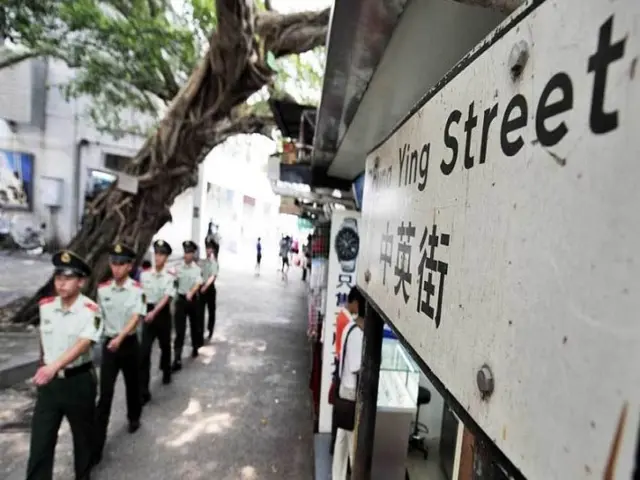It is difficult to set foot in Chung Ying Street. Visitors need first to obtain a permit at the Sheung Shui police station before they are allowed to pass a checkpoint in the border town of Sha Tau Kok, where Chinese tourists can be seen dragging along suitcases and boxes of baby formula.
Chung Ying Street, which literally translates to China England Street, lies on the border between Hong Kong and Shenzhen and straddled the boundary between China and British Hong Kong during the colonial era.
Being the only area in Hong Kong people from China could access in the early 1980s, Sha Tau Kok was flooded by Chinese tourists, who came to buy goods such as soaps, bolts of fabric and electronic appliances. This turned Chung Ying Street into a bustling shopping area. In the 1980s and 1990s the area received nearly 100,000 tourists a day, says Professor Lau Chi-pang of Lingnan University. Sensing a business opportunity, gold shops and jewellery stores sprang up in Sha Tau Kok.
Lau said Sha Tau Kok residents and shop owners recall the shops selling out of goods and how, before they could even restock the shelves, customers would grab goods directly from the delivery trucks.
Because of its location, Sha Tau Kok was also a place through which robbers fled from Hong Kong to mainland and illegal immigrants came the other way, and one where smuggling syndicates thrived. It was the security concerns that arose from these activities which led to the Sha Tau Kok area being sealed off from both Hong Kong and mainland. The only people allowed to go in and out freely are the town’s residents, who have long petitioned for the zone to be opened up.
With the easing of restrictions in recent years on individuals from mainland visiting other parts of Hong Kong, tourists have made places such as Mong Kok and Causeway Bay the new hot spots for visitors. While Chung Ying Street still has dozens of stores selling milk powder, Korean beauty products and daily necessities, many more stand empty as residents move out in search of better opportunities.
(SOUTH CHINA MORNING POST)
 简体中文
简体中文

